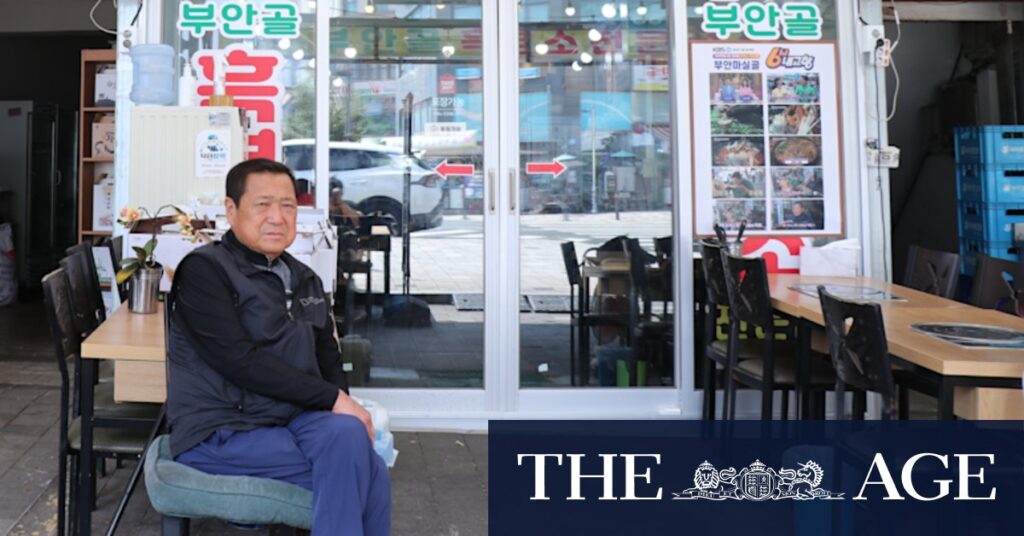
Seongnam/Seoul: More than seven years have passed since the butchering facilities at South Korea’s largest dog meat market were dismantled, transforming the area into a hub for black goat meat. Gone are the metal cages that once lined the Moran Livestock Market in Seongnam, south of Seoul, where up to 80,000 dogs were selected annually for purchase or live slaughter. Today, cartoonish signs of black goats greet visitors to a more sanitized and reduced precinct. Yet, for a dwindling few, dog meat remains available—but not for long.
In early 2027, a comprehensive ban on the dog meat trade will take effect across South Korea, terminating a centuries-old practice increasingly viewed as archaic in a nation where dogs are now cherished as pets. The impending prohibition represents a significant cultural shift, leaving those whose livelihoods depended on the trade grappling with the transition.
Tradition Versus Modernity
Kim Yong-bok, a 70-year-old restaurateur and president of the Moran livestock market merchants’ association, laments the change. “In the end, you could say the animal groups won,” he remarks. “I think it’s completely wrong. This is part of our traditional cuisine. It’s been eaten since the Joseon Dynasty.” Despite the market’s rebranding to “Moran Black Goat Street,” Kim still offers dog meat dishes, albeit to a shrinking clientele.
The Moran market once supplied a third of South Korea’s canine meat, but its closure in 2018 and subsequent bans on live dog sales marked the beginning of the end for the trade. These measures align with broader regional trends, as countries like Hong Kong, Taiwan, Thailand, and Singapore have also moved away from dog meat consumption.
Declining Demand and Shifting Attitudes
Even Kim acknowledges the decline in demand, noting that his customer base now consists mainly of older Koreans. “When business was good, we sold a lot of dog meat. Maybe about 100 kilograms a day. Now we sell 10 kilograms a day, or even less,” he says. After 2027, consuming or slaughtering dogs will incur fines, and while some may continue clandestinely, the practice is expected to largely vanish.
Surveys indicate a waning appetite for dog meat, with a 2022 Gallup Korea poll revealing only 8% of Koreans had consumed it in the past year, a drop from 27% in 2015, while 64% opposed the practice.
The ban, enacted under a 2024 national law, provides a three-year window for dog farmers, butchers, and restaurant owners to cease operations or transition to new ventures. Financial support accompanies this mandate, with early compliance earning higher compensation per surrendered dog.
Challenges and Concerns
The government’s plan also involves rehoming up to half a million dogs, though both farmers and animal rights activists express concerns over the lack of clarity for those that cannot be rescued. “From an animal protection perspective, this is difficult and frustrating to discuss. We believe euthanasia is preferable to slaughter because the slaughter process violates animal welfare laws,” says Chae Il-taek, a senior director at the Korean Animal Welfare Association.
On a personal level, individuals like Cha Hee-jung, who rescued her dog Dodam from a farm, advocate for more financial aid to support the rescue of remaining farm dogs. “It’s a very, very dark business,” Cha reflects, urging authorities to subsidize pet training and other supportive measures.
Looking Ahead
The South Korean government has pledged to monitor the market closely, ensuring all dog farms either close or transition by 2027. “We want support from the country’s dog meat business owners so that Korea can become an advanced nation with regard to animal welfare,” stated Park Jung-hoon, chief of the ministry’s Animal Welfare and Environment Policy Bureau.
However, the financial burden of transitioning remains a significant hurdle. Ju Young-bong, president of the Korea Dog Meat Association, highlights the costs involved in converting facilities for different livestock, which many farmers find prohibitive. “Most dog farmers are over 60; I am over 60 as well. Even young farmers are finding it extremely difficult [to transition]. Almost no one can take on the challenge,” he explains.
Despite these challenges, over 70% of dog farms have already shut down, leaving about 500 still operational, according to the Ministry of Agriculture, Food and Rural Affairs.
As the 2027 deadline approaches, the future of South Korea’s dog meat trade hangs in the balance, with the nation poised to embrace a new chapter in its culinary and cultural evolution.





